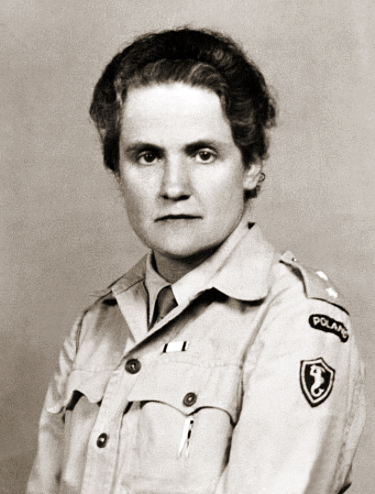In the Second Polish Republic, a great academic career opened before Karolina Lanckorońska at the Department of Art History at the Jan Kazimierz University in Lwów (today’s Lviv). Unfortunately, it was interrupted by the outbreak of the Second World War, during which she was sent to the German concentration camp at Ravensbrück. Although her pre-war academic achievements, as well as her wartime experiences, left a mark on Polish history, the post-war period was equally important for her life. Lanckorońska then became a leading Polish activist in Italy, spreading and enriching Polish culture.
Karolina, called Karla at home, was born in Buchberg am Kamp (Lower Austria) in a grand palace built by her father, Count Karol Lanckoroński. He had a great influence on her education. In his residence, he managed to amass a large art collection and set up a library of 70,000 books.
Thanks to her father’s passions, Lanckorońska completed her doctorate in art history at the University of Vienna in 1926 and habilitated at the University of Lwów in 1935. She also headed the Department of Art History at this university.
When in 1939 Soviets occupied the Eastern Borderlands, she was expelled from the university pushing her towards activity in the Union of Armed Struggle and then the Home Army. Because she belonged to the intelligentsia and at the same time to the aristocracy, Lanckorońska had to hide from the Soviet NKVD and made her way to the German-occupied territories. After the outbreak of the German-Soviet war, she became active in Stanislawow in the Central Welfare Council – the only Polish aid institution allowed by the Germans. There, in mid-1942, she was arrested, and then in January 1943 the Germans sent her to Ravensbrück concentration camp, from where she was released in April 1945.
After the war she settled in Italy, where she founded the Polish Historical Institute in 1945. She was also a co-founder of the Polish Scientific Society Abroad. In 1960 the Karol Lanckoroński Fund was established, which was transformed seven years later into the Lanckorońskis Foundation. To this day, it provides financial support to Polish cultural and scientific institutions abroad, publishes publications on Polish history and awards scholarships to young scientists and students.
The heiress of an incredible fortune, priceless archival records and works of art, she decided in 1994 to donate almost all her collection to her homeland, although she never visited Poland after the war.
She died in 2002 at the age of 104 in Rome.





